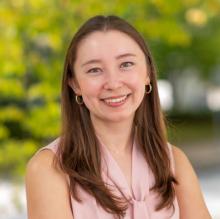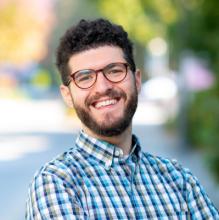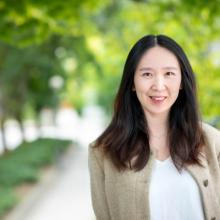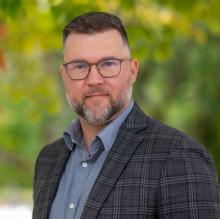Omer is an applied researcher specializing in disaster recovery and humanitarian response. Providing policy directives to the UN, USAID, and the Pakistan Planning Commission, Omer's interdisciplinary research examines social repair after natural disasters in contexts of structural violence in two remote Himalayan valleys in Northern Pakistan.
Research Description
My research examines how vulnerable disaster survivors engage in processes of social repair following large-scale natural disasters. I explore this in the context of two remote Himalayan valleys in Northern Pakistan. The 2010 monsoon floods as well as the 2005 Kashmir and Northern Areas earthquake severely disrupted these valleys, killing large numbers of residents, destroying infrastructure and permanently altering communities and social relations. Using oral history interviews, kitchen conversations, participatory photography, reflective journals, walkabouts and other ethnographic methods, I attempt to understand the micro processes through which disaster survivors reconcile the fragility of their social and physical worlds, and strive to lead a life of meaning. Drawing on the stories and lived experiences of my research participants, I offer guidance to disaster recovery practitioners and policy makers. My research also reveals the precarious nature of daily life in Pakistan's mountainous north and the layers of structural violence that condition it.
What does being a Public Scholar mean to you?
Being a Public Scholar means that you are committed to extending the implications of your research outside the confines of the academic space. This means not only reaching out to policy and practice but also influencing public opinion and creating ways to bridge gaps between research participants, the university and the general public.
In what ways do you think the PhD experience can be re-imagined with the Public Scholars Initiative?
I think the possibilities of a meaningful career outside academia should be developed and supported early on in the PhD journey. In addition to providing funding, the Initiative could reach out and form relationships with organizations, think tanks, community groups etc. This can be an iterative process. For example several American universities have relationships with international organizations such as the UN, who engage with students over their research in an agreed upon manner. This is just one example. Similarly, a problem solving approach can be taken where PhD students work as consultants for various community organizations, government agencies etc. either individually or collectively in national and international contexts.
How do you envision connecting your PhD work with broader career possibilities?
I have always been attracted to a hybrid career involving working at multiple scales and bridging important gaps between academia, policy and practice as well as with local communities. Being placed in an academic institution allows some space for these kinds of engagements, but I will be interested in reaching out to applied research and advocacy organizations. I am already doing this by involving a variety of organizations and partners with an applied research interest into my dissertation work. Additionally, I intend to disseminate my research to audiences outside of academia through a variety of popular and policy relevant writing.
How does your research engage with the larger community and social partners?
I was fortunate enough to integrate social partners relevant to my field of work early on in my PhD process. In the context of my work these include international humanitarian organizations. Additionally, I am also committed to translating my work to a much wider audience. I am doing this by co-creating a cookbook/food stories project with my research participants showcasing the culinary lives of the residents of Pakistan’s Himalayas set against the backdrop of cultural and ecological knowledge, disaster recovery and social repair.
Why did you decide to pursue a graduate degree?
I worked as a humanitarian worker in the 2010 Pakistan emergency flood response. This was a large-scale humanitarian crisis affecting some 20 million Pakistanis and submerging nearly 1/5th of the country. I worked closely with disrupted communities assisting aid organizations operationalize accountability systems. My close interactions with disaster survivors helped reveal the fraught nature of humanitarianism and the contradictions within contemporary disaster recovery discourse. Graduate school seemed like an excellent space to unpack these concerns.
Why did you choose to come to British Columbia and study at UBC?
I chose UBC primarily because of the flexibility of its programs. I wanted to be immersed in an interdisciplinary academic community, which was more concerned with understanding complex global problems than disciplinary gatekeeping. I was also drawn to my department (Educational Studies) in particular because of its orientation towards self-reflexivity, decolonization and community engagement.
I have always been attracted to a hybrid career involving working at multiple scales and bridging important gaps between academia, policy and practice as well as with local communities.




